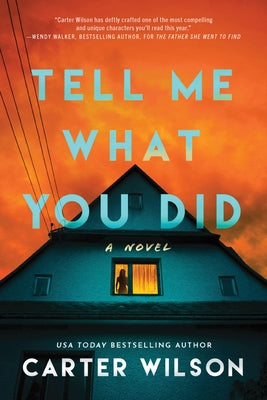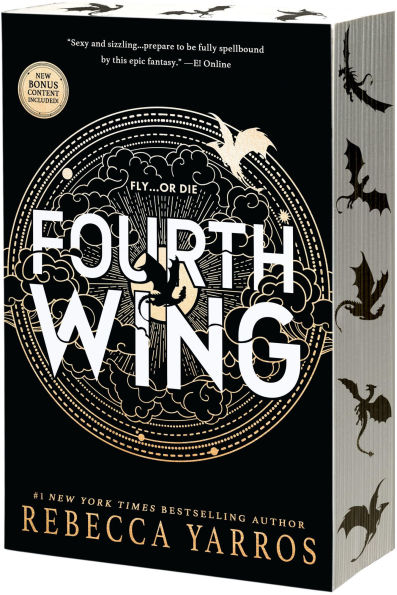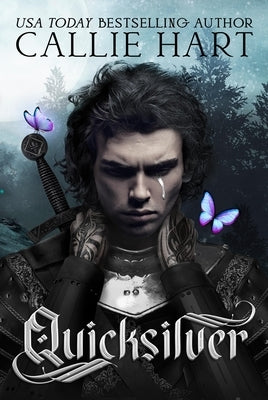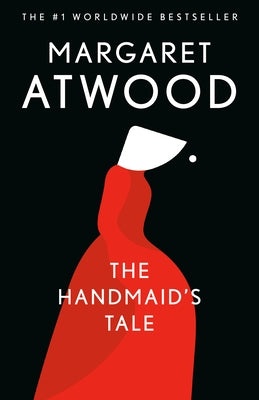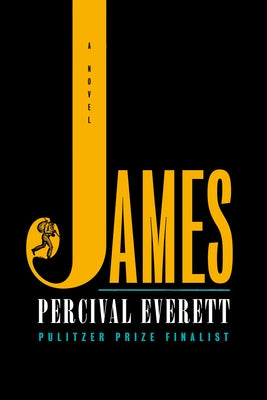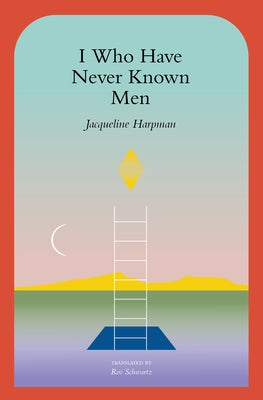Best Dystopian Novels You Must Read

Best Dystopian Novels You Must Read
Dystopian literature is a genre that reflects humanity's dark and often frightening visions of the future. It explores the potential dangers and destructive consequences brought about by societal, political, and technological changes. Writers from various parts of the world have created their own unique visions of dystopian worlds and characters. Themes such as lack of freedom, totalitarian regimes, class divisions, ecological collapse, and technological control often lie at the heart of this genre. These books delve into the darker aspects of human nature and power struggles, prompting readers to question and ponder. Here are some of the best dystopian books of all time...
1984
1984 by George Orwell is considered one of the best and most influential dystopian novels of all time. Published in 1949, it portrays a dark and oppressive society ruled by the totalitarian regime of Big Brother. Set in the fictional world of Oceania, the novel follows the protagonist, Winston Smith, as he rebels against the Party's control and attempts to preserve his individuality and freedom. 1984 explores themes such as the nature of power, the dangers of totalitarianism, the loss of individuality, and the importance of truth. Orwell's portrayal of a society stripped of privacy, free will, and critical thinking resonates strongly with readers, making it an enduring and thought-provoking novel.
Brave New World
Brave New World is a dystopian novel written by Aldous Huxley and published in 1932. It presents a future society that is technologically advanced, but also deeply flawed and oppressive. The story is set in London in the year 2540, where society is organized in a highly structured way. Humans are genetically engineered and divided into different castes depending on their intelligence and abilities. They are conditioned from birth to accept the norms and values of the society to maintain stability and social order. "Brave New World" is considered a classic of dystopian literature due to its thought-provoking critique of a future dominated by consumerism, conformity, and the loss of individuality. It continues to be relevant in discussing the potential consequences of sacrificing personal freedoms for the sake of stability and harmony.
Fahrenheit 451
Fahrenheit 451 is a classic dystopian novel written by Ray Bradbury and published in 1953. It presents a dark, futuristic society where books are banned and burned by the government to suppress knowledge and independent thinking. The story follows Guy Montag, a firefighter whose job is to burn books. However, he begins to question his role in society after a series of encounters, including one with a young girl named Clarisse, who inspires him to rethink his beliefs. Throughout the novel, Bradbury explores themes of censorship, intellectual freedom, and the consequences of a society that denies the value of literature. "Fahrenheit 451" warns against the dangers of complacency and the importance of critical thinking in maintaining a free and meaningful existence.
The Handmaid's Tale
The Handmaid's Tale is a dystopian novel written by Margaret Atwood and published in 1985. It is considered one of the most significant works of dystopian literature and has gained widespread acclaim for its thought-provoking themes.
Set in a future totalitarian society known as Gilead, the story is narrated by a woman called Offred. Gilead is a theocratic regime that has risen to power after a religious extremist group overthrows the United States government. Offred, like other handmaids, is assigned to bear children for high-ranking officials who are unable to conceive due to pollution and sexually transmitted diseases. The society strictly controls reproductive rights and roles, subjecting women to oppression, subjugation, and extreme religious fundamentalism. Margaret Atwood's novel explores various themes, including the erosion of women's rights, gender oppression, and the dangers of authoritarianism and religious extremism. The Handmaid's Tale highlights the significance of individual agency, resistance, and the pursuit of freedom in the face of a repressive regime.
The Hunger Games
The Hunger Games is a dystopian novel written by Suzanne Collins and was published in 2008. The book is set in a post-apocalyptic nation of Panem, which is divided into twelve districts under the control of a powerful Capitol.
The story follows the 16-year-old protagonist, Katniss Everdeen, who volunteers to participate in the annual Hunger Games. The Hunger Games is a televised event where two tributes from each district, a boy and a girl, are chosen to fight to the death in a controlled arena. The event is designed to punish the districts for a past uprising and to remind them of the Capitol's dominance. Throughout the novel, Katniss faces numerous challenges as she fights to survive in the Hunger Games arena. She forms alliances, strategizes, and demonstrates her survival skills. The book explores themes of inequality, oppression, sacrifice, and the resilience of the human spirit in the face of extreme circumstances.
Animal Farm
Animal Farm by George Orwell is indeed regarded as one of the best dystopian books of all time and published in 1945. The story revolves around a group of farm animals who rebel against their human farmer, Mr. Jones, in an effort to establish an egalitarian society where all animals are equal. They overthrow Mr. Jones and take control of the farm, renaming it "Animal Farm." The pigs, led by the politically ambitious and cunning Napoleon, take charge and establish their authority. Animal farm offers a scathing critique of totalitarianism and explores themes such as corruption, manipulation, and the abuse of power. It is a powerful allegory that mirrors the events and consequences of the Russian Revolution and the rise of Joseph Stalin.
The Road
"The Road" by Cormac McCarthy is indeed one of the best dystopian books of all time. Published in 2006, "The Road" is a post-apocalyptic novel set in a desolate, bleak, and harrowing world. McCarthy's writing style is known for its sparse and stripped-down nature, reflecting the grim and menacing atmosphere of the story. The novel follows a man and his young son as they traverse across a devastated landscape, heading southward in search of more hospitable conditions. The world they inhabit is shrouded in darkness, with little hope and scarce resources. They encounter numerous challenges, including marauders, cannibals, and other desperate survivors. "The Road" explores powerful themes such as the resilience of the human spirit, the meaning of life in the face of hopelessness, and the lengths to which one would go to protect those they love. McCarthy's prose delves into the depths of despair while simultaneously highlighting the enduring power of love and compassion.
Neuromancer
"Neuromancer" is a groundbreaking science fiction novel written by William Gibson. Published in 1984, it is considered a pivotal work in the cyberpunk genre and one of the most influential dystopian novels of all time. Set in a near-future world, "Neuromancer" presents a grim and dystopian vision of society dominated by powerful corporations and a vast network of interconnected computer systems known as "the matrix." The protagonist, Henry Case, is a washed-up computer hacker who is hired for one last job by a mysterious employer. The novel explores various themes, including artificial intelligence, virtual reality, drug abuse, and the blurring lines between humanity and technology. Gibson's vivid and gritty portrayal of a dystopian future, combined with his masterful storytelling and intricate plot, has captivated readers for decades.
Do Androids Dream of Electric Sheep?
"Do Androids Dream of Electric Sheep?" is a well-known dystopian science fiction novel written by Philip K. Dick. Published in 1968, it has since become a classic of the genre. The story is set in a post-apocalyptic future, where mankind has been devastated by a nuclear war, resulting in widespread societal decay and the extinction of many animal species. The protagonist, Rick Deckard, is a bounty hunter assigned the task of tracking down and "retiring" (i.e., killing) rogue androids known as "replicants" who have escaped from Martian colonies and are illegally living on Earth. The novel explores themes of empathy, identity, and the blurred lines between humans and androids. It raises philosophical questions about what it means to be human and challenges the reader's perceptions of reality. Dick's writing is known for its thought-provoking concepts and narrative complexity, and "Do Androids Dream of Electric Sheep?" is no exception.
The Giver
"The Giver" is a dystopian novel written by Lois Lowry, first published in 1993. It is widely regarded as one of the best dystopian books of all time and has garnered numerous awards, including the Newbery Medal. The story is set in a seemingly utopian society that exists in a future world. In this society, everything is strictly controlled, and every aspect of life is monitored and regulated. The protagonist, a twelve-year-old boy named Jonas, is chosen to become the Receiver of Memory, a position that requires him to receive knowledge and memories from the past, which are kept hidden from the rest of society. Through Jonas's journey, the novel explores themes of individuality, freedom, and the consequences of an overly controlled society. It raises questions about what it means to truly live and be human.
We
"We" by Yevgeny Zamyatin is indeed considered one of the best dystopian books of all time. Published in 1924, it is often regarded as one of the earliest and most influential examples of the genre. Set in a future society called the One State, "We" presents a world where individuality and personal freedom are suppressed in the pursuit of perfect order and uniformity. The citizens of One State are constantly monitored and live strictly regulated lives, their actions dictated by the all-powerful Benefactor and the totalitarian government. "We" explores themes of personal freedom, identity, and the dangers of an oppressive society. It reflects on the dehumanizing effects of collectivism and the importance of individualism and self-expression in a dystopian world.
The Stand
"The Stand" is a dystopian novel written by Stephen King, published in 1978. It is considered one of Stephen King's most iconic and epic works. The story is set in a post-apocalyptic world, where a deadly pandemic called "Captain Trips" wipes out most of the world's population, leaving only a small percentage of survivors. The survivors find themselves divided into two groups: those led by the kind-hearted Mother Abagail, who receive dreams guiding them to her in Boulder, Colorado, and those drawn to the dark and dangerous figure known as Randall Flagg in Las Vegas, Nevada. "The Stand" is praised for its immersive storytelling, complex characters, and blend of horror, fantasy, and post-apocalyptic elements. It is often considered a staple of the dystopian genre, showcasing the author's knack for crafting vivid and engaging narratives.
The Children of Men
"The Children of Men" is a dystopian novel written by P.D. James and was first published in 1992. Set in the year 2021, the story takes place in a world where human infertility has resulted in the gradual extinction of the human race. The last baby to be born was in 1995, making the Earth a bleak and desolate place. The protagonist, Theo Faron, is a professor of history and finds himself drawn into a political conspiracy when he is approached by a group called the Five Fishes. This group is fighting against the oppressive government and advocating for change in the face of the impending end of humanity. The novel explores themes of hope, despair, power, politics, and the meaning of human existence. It raises questions about social and political structures, ethics, and the consequences of a world with no future generations.
Oryx and Crake
Oryx and Crake is a dystopian novel written by Margaret Atwood. It was first published in 2003 and is the first book in the MaddAddam trilogy. This captivating and thought-provoking story explores themes of genetic engineering, environmental degradation, corporate power, and the consequences of playing with nature. In "Oryx and Crake," Atwood presents a future world devastated by a catastrophic event, focusing on the life of a character named Snowman, who appears to be the only remaining human. As Snowman navigates this desolate landscape, he reminisces about his past and his friend, Crake, a genius scientist responsible for the creation of a new race of beings called Crakers. The novel vividly depicts a world where rampant corporate greed and scientific experimentation have gone awry. Atwood's skillful storytelling explores the detrimental consequences of unchecked human actions, shedding light on the urgent need for environmental stewardship and ethical responsibility.
The Maze Runner
"The Maze Runner" is a dystopian science fiction novel written by James Dashner. It was first published in 2009 and is the first book in "The Maze Runner" series. The story follows Thomas, a teenager who wakes up in a strange place called the Glade, with no memory of who he is or how he got there. The Glade is surrounded by a massive maze that serves as a deadly challenge for the group of boys who have been trapped there. Thomas quickly realizes that the only way to escape is by solving the ever-changing maze, but this task becomes even more urgent when a girl named Teresa arrives the next day, the first and only one to ever enter the Glade. "The Maze Runner" is known for its intense and fast-paced plot, filled with suspense, mystery, and thrilling action scenes. The book has been praised for its unique concept, intriguing characters, and the way it explores themes such as identity, friendship, and sacrifice.
Station Eleven
"Station Eleven" is a dystopian novel written by Emily St. John Mandel. Published in 2014, it quickly gained critical acclaim and became a bestseller. The book tells the story of a group of characters as they navigate a post-apocalyptic world devastated by a global pandemic called the Georgian Flu. The novel explores themes of memory, loss, art, and the fragility of human civilization. It illustrates how culture and art can be a source of hope and meaning in the darkest of times. The significance of interconnectedness and the memories that bind humanity are also explored throughout the story.
If you're intrigued by the captivating worlds and thought-provoking themes of dystopian literature, you can explore these iconic books and more. Immerse yourself in the imaginative realms crafted by visionary authors and delve into the depths of societal reflection and human nature. With affordable prices, we offer a wide selection of dystopian novels to satisfy your literary cravings. Whether you're a seasoned dystopian enthusiast or a newcomer to the genre, you'll find plenty of options to choose from. Start your journey into dystopia today and discover the power of these timeless narratives.



